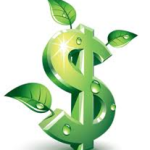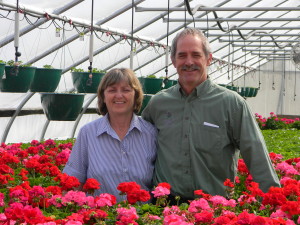 Reducing energy use has growing appeal during this period of rising energy costs. If you could get all your electricity needs met by the sun, and never pay a utility bill again, life would be good.
Reducing energy use has growing appeal during this period of rising energy costs. If you could get all your electricity needs met by the sun, and never pay a utility bill again, life would be good.
One of the primary obstacles to reducing energy use is the upfront cost of energy efficient technology. The costs can be sizable and have left many energy projects sitting on the drawing board.
That cost obstacle can now be overcome through the use of innovative financing options. In some cases the options, like Property Assessed Clean Energy, even require a guarantee that the energy savings exceed, and therefore fully fund, the cost for the energy efficient technology. In these cases, the energy upgrade actually increases bottom line profitability.
Rural Energy for America Program
The REAP initiative is an example of one financing program that is propelling energy efficiency projects. REAP stands for Rural Energy for America Program. The goal of the program is to provide the funds to make energy efficiency improvements or to install renewable energy systems (such as solar) in the rural setting. The program is geared towards farms, ranches and small rural businesses.
Cozy Acres Greenhouse in North Yarmouth, Maine is a rural business owned by Jeff and Marianne Marstaller. The Marstallers wanted to incorporate energy efficiency into their greenhouse operations but the upfront costs were prohibitive. A $48,750 REAP grant reduced their initial investment and made the unique energy efficiency project possible. The result of that project created an interesting story.
Plants Grown with Zero Emissions
The Marstallers used their REAP grant as seed money to install a 30 kW photovoltaic system that provides the electricity to fully power a new 3,000 sq ft greenhouse that is heated exclusively by a 10 ton geothermal system. Though the electricity from the PV system is fed back into the local power grid, and returned as credits on their monthly bill, the amount generated (39,000 kWh/yr) exceeds the needs of the new greenhouse.
The plants and produce that are grown in that greenhouse are being created using zero commercial energy. Cozy Acres Greenhouse markets their produce locally as “Plants Grown with Zero Emissions”. When you compare that outcome to produce being grown on petroleum hungry farms then shipped to local markets from foreign locations, their product is rather extraordinary!
The REAP grant money, combined with income tax credits, accelerated depreciation and a State of Maine Farms for the Future grant, supplied financial incentives sufficient to make the project feasible.
Project feasibility is a key reason The Energy Alliance Group (EAG) of Michigan recently partnered with the Michigan-based Srinergy company. That partnership will now provide clients with end-to-end solar energy solutions. The Srinergy company designs and engineers complete solar applications for commercial, residential and non-profit organizations.
According to Karin Viola, Srinergy Business Development Manager, “We design and install the solar systems and facilitate 20 year financing through third party financiers. That generally brings the cost down long-term and offers consistent pricing, which is really great for clients,”
“The cost obstacle can now be overcome through the use of innovative financing options!”
The need for energy efficiency is on the rise and unique financing tools are making those types of projects more affordable. Navigating the many financing options can be formidable but ultimately worthwhile. The Energy Alliance Group understands that financing can make the difference between a project that simply sits on the drawing board and one that actually begins to bear “fruit”!
The Energy Alliance Group of Michigan is a leader in clean energy PACE project development and financing

Leave a Reply